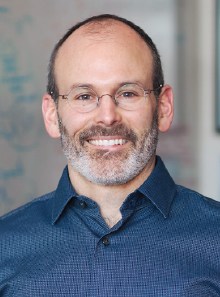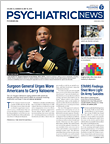“Mindfulness” is no longer an esoteric concept understood by only a few. Walk into Whole Foods, and there on the magazine rack is a copy of Mindful with a cover story titled “Make Peace With Your Anxious Brain.” Googling the term results in 86,000,000 results. Mindfulness podcasts and apps are proliferating, and now the University of Massachusetts Medical School has opened a new, stand-alone mindfulness division under the direction of psychiatrist Judson Brewer, M.D., Ph.D.
In addition to his new title, Brewer is director of research at the medical school’s Center for Mindfulness, an associate professor of medicine and psychiatry, and a research affiliate in the Department of Brain and Cognitive Sciences at MIT. He has also developed three apps—“Craving to Quit” for smoking cessation, “Eat Right: Now!” for mindful eating, and most recently, “Unwinding Anxiety.”
One of Brewer’s many studies, “Finding the Right Match: Mindfulness Training May Potentiate the Therapeutic Effect of Non-Judgment of Inner Experience on Smoking Cessation,” was published in Substance Use and Misuse in 2014. In September 2017 he published a study on the broad neurophysiological impact of meditation on the brain, “Meditation Is Associated With Increased Brain Network Integration,” in Neuroimage.
A working definition of mindfulness is “paying attention in a particular way, on purpose, in the present moment, and nonjudgmentally,” said Brewer. Properly employed, it can enhance empathy and emotional resilience.
Empathy—the ability to understand and relate to another’s feelings—is clearly a critical skill for physicians. As medical students move into their third year of school, empathy declines, and by the time physicians start practicing, up to 60 percent report burnout, Brewer observed.
This is even more critical for psychiatrists, he noted. “Our job is to be with and listen to our patients, to develop a compassionate relationship. If we can’t empathize with our patients, that relationship is not going to magically form itself.”
As the executive and research director of the Center for Mindfulness and Compassion at the Cambridge Health Alliance (CHA), Zev Schuman-Olivier, M.D., is involved on a daily basis in bringing mindfulness into practice. The CHA is one of four main teaching hospitals for Harvard Medical School’s psychiatry program.
Compassion and mindfulness are critically related, said Schuman-Olivier. Mindfulness can be challenging as it brings to light thoughts and emotions previously avoided. “Many of us have not just a judgmental autopilot but also a self-critical autopilot,” Schuman-Olivier noted. To progress in the practice of mindfulness, it is necessary to develop compassion—for oneself and for others. Further, he said, there is a need for a “middle path” where mindfulness practice is used with medication.
Many people need medication to function day to day, and for these patients, part of mindfulness is “accepting that there is a place for medication in your life right now.”
His concern that mindfulness-based practices may be seen as a simple solution to complex problems is shared by Michelle Dossett, M.D., Ph.D., M.P.H., an internist and clinical researcher at the Benson-Henry Institute of Mind-Body Medicine at Massachusetts General Hospital and an assistant professor of medicine at Harvard Medical School.
“Part of the problem we are getting into is that mindfulness is being put out there as the magic pill that’s going to fix everything,” said Dossett. Mindfulness should not be divorced from a more inclusive approach to wellness, she commented. Dossett uses the term “wellness” because she is concerned that meditation or mindfulness practices alone are not enough. “You can meditate all you want, you can practice mindfulness all you want, but if you are stressed out, sleep-deprived, feeding your body junk, and not moving your body, you are not going to be optimally resilient to stress.” ■
“Finding the Right Match: Mindfulness Training May Potentiate the Therapeutic Effect of Non-Judgment of Inner Experience on Smoking Cessation” can be accessed
here. “Meditation Is Associated With In-creased Brain Network Integration” is available
here. Resources to help psychiatrists improve their well-being and avoid burnout are posted on
APA’s website.

